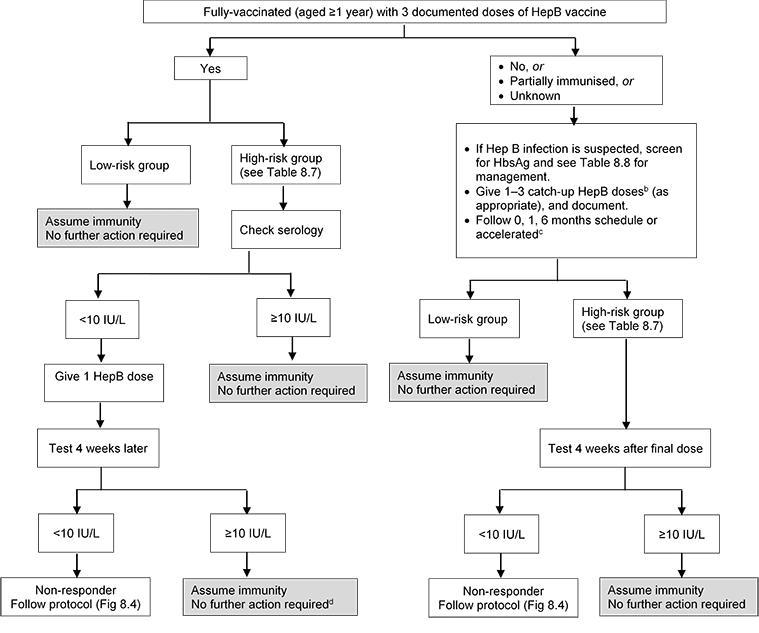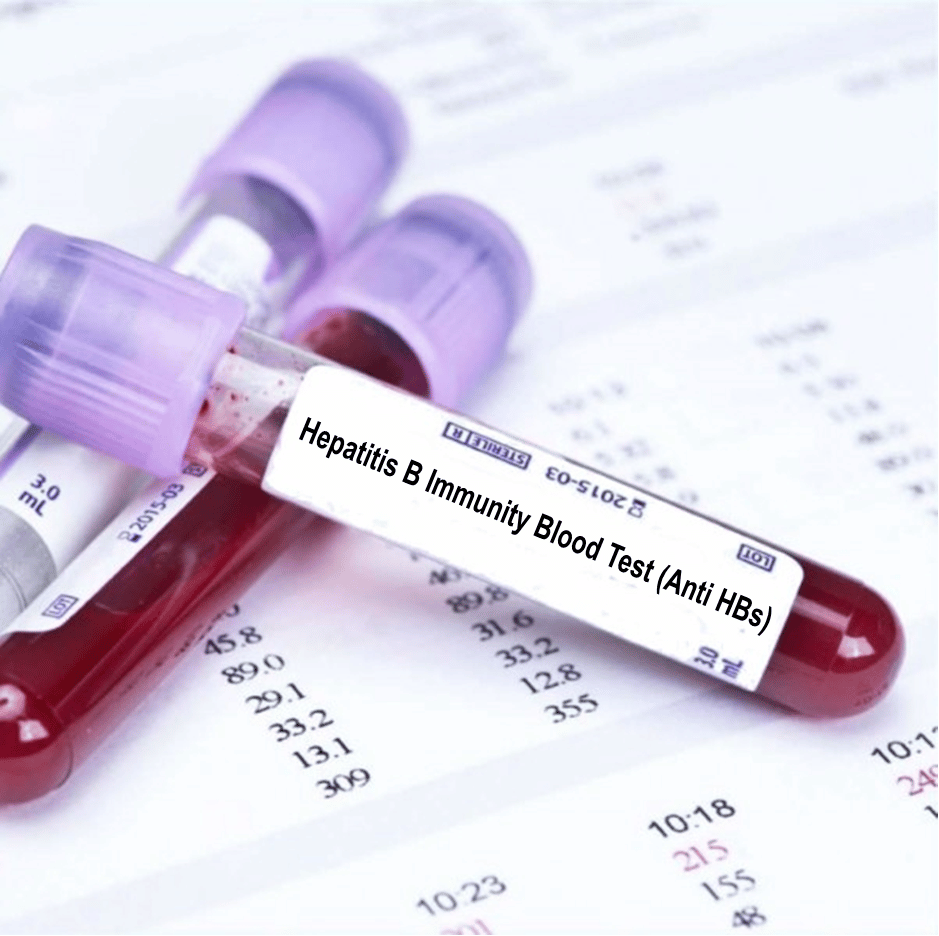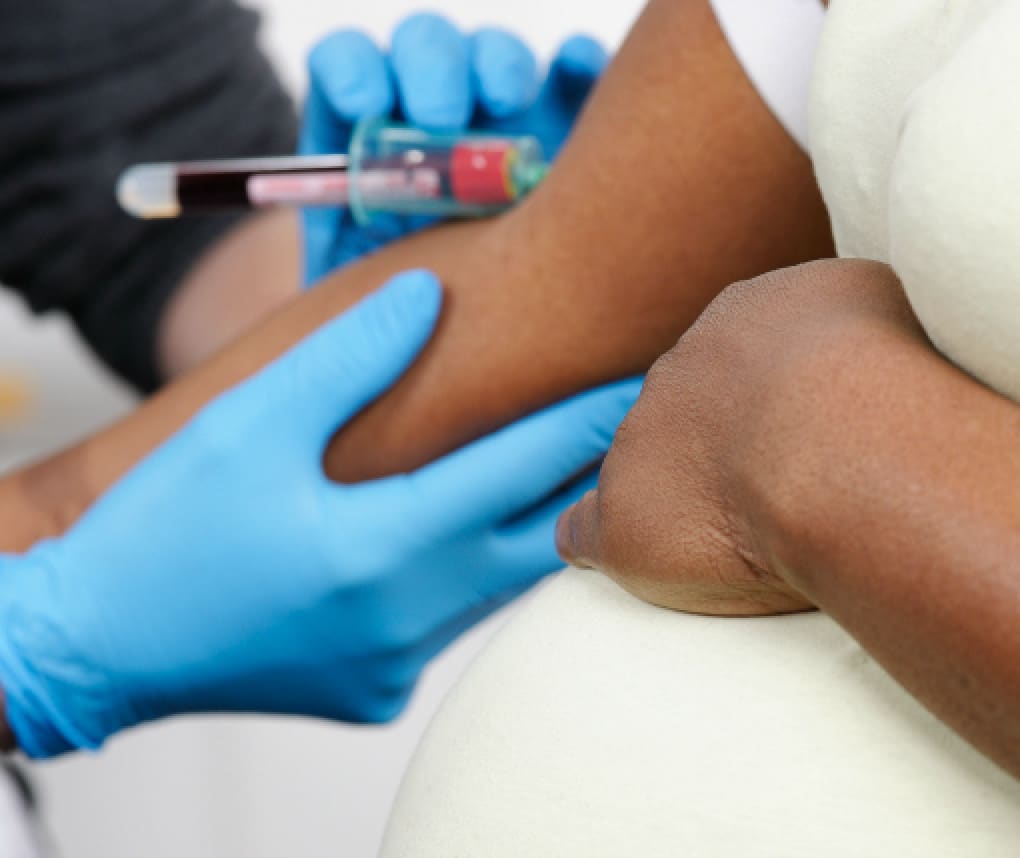Purpose Of The Hepatitis B Surface Antibody Test
The HBsAb test determines the presence and quantity of HBV antibodies in your blood in order to establish how immune you are to the virus. These antibodies are “encoded” by your immune system when it encounters the HBV virus through blood or sexual contact, or if you are vaccinated with the hepatitis B vaccine. Your body uses the antibodies to attack the virus if it appears again.
There are two types of antibodies produced in response to the hepatitis B virus:
- Immunoglobulin M is the antibody that mounts the initial attack but eventually fades away.
- Immunoglobulin G is the antibody that provides long-lasting immune protection against HBV. The immunity can last for many years, but it gradually wanes over time.
The HBsAb test may be used to look for prior exposure to HBV . By comparing levels of IgM and IgG, a healthcare practitioner can also use the test to monitor your recovery from an acute HBV infection.
Additionally, the HBsAb test can reveal whether you are successfully vaccinated, not successfully vaccinated, or indeterminately vaccinated. A booster vaccine may be needed if the HBsAb level drops below protective levels.
The HBsAb test should not be confused with either the hepatitis B surface antigen test or the hepatitis B core antibody test, both of which are used to determine if you have been infected with HBV.
Who Is At Risk For Hepatitis B
Anyone can contract hepatitis B. However, certain groups are at greater risk. According to the CDC, the following groups are at highest risk for contracting hepatitis B:
- Infants born to infected mothers
- People who inject drugs or share needles
- Sexual partners of people infected with hepatitis B
- Men who have sex with men
- People living in close proximity to a person with hepatitis B
- Health care workers or others exposed to blood in their work environments
- Hemodialysis patients
Hepatitis B Blood Tests
The Hepatitis B Panel of Blood Tests
Only one sample of blood is needed for a hepatitis B blood test, but the Hepatitis B Panel includes three parts. All three test results are needed to fully understand whether a person is infected or not. Below is an explanation of the 3-part Hepatitis B Panel of blood test results.
Recommended Reading: What Is Hepatitis C And How Do You Get It
Prior To Vaccination: Pre
- Some patients should be tested for existing immunity to hepatitis A, before vaccination these patients should be tested only for Hep A IgG
- Patients who should be tested prior to vaccination are those who have a reasonable likelihood of previous hepatitis A infection, such as:
- People born in geographic areas with high or intermediate prevalence of hepatitis A
- Native Americans
Counseling Practices That Educate Support And Motivate Clients Undergoing Screening

Clients might need help deciding whether to get screened, understanding the test results, and determining their next steps. Even when services offered through the substance abuse treatment program are limited, discussing testing with clients presents an opportunity for counselors to motivate clients for change by confronting substance use and by making choices that improve their overall health. However, this may also be true when services are offered on-site through substance abuse treatment programs. A study at one methadone clinic that offered hepatitis screening and vaccination revealed that although the majority of clients completed screening , only 54.7 percent of clients who lacked for hepatitis A received vaccinations and only 2.9 percent of clients who lacked immunity for received vaccinations .
The Consensus Panel makes the following general recommendations while recognizing that, in some programs, the counselors role may be limited:
You May Like: How Do You Get Acute Hepatitis
Diagnosing Hepatitis A B & C
At NYU Langone, hepatologists, or liver specialists, and infectious disease specialists use blood tests to diagnose hepatitis A, B, and C. These viral infections cause inflammation of the liver.
If the results of a blood test confirm a diagnosis of viral hepatitis, your doctor may recommend imaging tests or a liver biopsy to determine the extent of liver disease.
Recommended Reading: Can You Heal From Hepatitis B
Understanding Your Test Results
Understanding your hepatitis B blood tests can be confusing. It is important to talk to your health care provider so you understand your test results and your hepatitis B status. Are you infected? Protected? Or at risk? The Hepatitis B Panel of blood tests includes 3 tests and all three results must be known in order to confirm your status.
Below is a chart with the most common explanation of the test results, but unusual test results can occur. Please note that this chart is not intended as medical advice, so be sure to talk to your health care provider for a full explanation and obtain a printed copy of your test results. In some cases, a person could be referred to a liver specialist for further evaluation.
More Detailed Information About Hepatitis B Blood Tests
An acute hepatitis B infection follows a relatively long incubation period – from 60 to 150 days with an average of 90 days. It can take up to six months, however, for a person to get rid of the hepatitis B virus. And it can take up to six months for a hepatitis B blood test to show whether as person has recovered from an acute infection or has become chronically infected .
The following graphic from the U.S. Centers for Disease Control and Prevention represents the typical course of an acute hepatitis B infection from first exposure to recovery.
According to the CDC, a hepatitis B blood test result varies depending on whether the infection is a new acute infection or a chronic infection.
Read Also: What Is Hepatic Flexure Cancer
Whats The Hepatitis B Titer Test Used For
A hepatitis B titer test measures antibodies in your blood to see if youre immune either due to vaccination or previous infection.
Hepatitis B is a viral infection that targets your liver. It can be transmitted by coming into contact with the bodily fluids of an infected person. A person with the virus can also infect their child during birth.
Hepatitis B can develop into a chronic infection. Chronic infection occurs when your body cant fight off the virus within six months. Chronic hepatitis B infections most commonly develop less than six years old, especially in infants.
Hepatitis B titer tests can be used to evaluate:
- whether a high-risk person is immune to hepatitis B
- whether hepatitis B immunoglobulin is needed after a needle prick
- men who have sex with men
- people born in countries with a hepatitis B prevalence greater than 2 percent
- people born in the United States not vaccinated as children and with parents born in regions with more than 8 percent hepatitis B prevalence
You may need your titer test results as proof of hepatitis B immunity in order to get into healthcare programs at many schools for example, the nursing program at Lone Star College. In the United States, employers are not allowed to withdraw a job offer if they learn you have hepatitis B.
The Treatment Programs Role In The Screening Process
Medical staff members at substance abuse treatment programs might assume the primary role for screening individuals for and explaining the screening process and test results. Opioid treatment programs with medical staff members should screen for and C at intake and periodically as indicated. In programs without onsite medical staff, clients may be referred elsewhere for screening with minimal involvement of the substance abuse treatment program.
Regardless of the type of program, counselors should have a basic understanding of the importance of screening, the screening process, and the meaning of the results. Counselors can encourage clients referred for screening to follow through and complete the screening and evaluation process . Clients might feel anxious about being diagnosed with hepatitis, and they might delay or avoid getting screened.
Don’t Miss: How Much Is A Hepatitis A Shot
How Can I Get A Hepatitis B Test
Hepatitis B testing is typically prescribed by a doctor and performed in a hospital, lab, or another medical setting. Taking a hepatitis B test requires a blood sample, which can be collected by a health care professional.
For laboratory-based testing, blood is drawn from your vein. After blood is collected, the sample is sent to a laboratory for analysis.
The test can also be ordered online and is available through our shop page.
Taking A Hepatitis B Test
Testing for hepatitis B is performed on a sample of blood. A doctor, nurse, or other health care provider can obtain a blood sample using a small needle to draw blood from a vein.
At-home hepatitis B testing requires that users carefully follow instructions provided in the test kit to collect a small sample of blood, package the sample, and mail it to a lab for testing.
Also Check: Hepatitis B Symptoms And Treatment
Submission And Collection Notes
Detailed instructions for ordering Hepatitis B testing are available to assist with completing the Hepatitis Serology boxes in section 3 of the General Test Requisition.
For testing all Hepatitis markers, HIV, HTLV, Syphilis and Rubella, you only are required to submit two FULL red top or serum separator tubes .
Do NOT submit glass tubes.
Transmission Symptoms And Treatment

How is HBV transmitted?
HBV is transmitted through activities that involve percutaneous or mucosal contact with infectious blood or body fluids , including
- sex with a partner who has HBV infection
- injection drug use that involves sharing needles, syringes, or drug-preparation equipment
- birth to a person who has HBV infection
- contact with blood from or open sores on a person who has HBV infection
- exposures to needle sticks or sharp instruments and
- sharing certain items with a person who has HBV infection that can break the skin or mucous membranes , potentially resulting in exposure to blood.
How long does HBV survive outside the body?
HBV can survive outside the body and remains infectious for at least 7 days .
What should be used to clean environmental surfaces potentially contaminated with HBV?
Any blood spills should be disinfected using a 1:10 dilution of one part household bleach to 9 parts water. Gloves should be worn when cleaning up any blood spills.
Who is at risk for HBV infection?
The following populations are at increased risk for becoming infected with HBV:
- Infants born to people with HBV infection
- Sex partners of people with HBV infection
- Men who have sex with men
- People who inject drugs
- Household contacts or sexual partners of known people with chronic HBV infection
- Health care and public safety workers at risk for occupational exposure to blood or blood-contaminated body fluids
- Patients on hemodialysis
Who should be screened for HBV?
Also Check: Liquid Hepato For Dogs Side Effects
Ethics Approval And Consent To Participate
Ethical approval with a referenced protocol number LHREC/2020/07 to conduct the study was granted by Lubaga hospital research ethical review committee following thorough review to ensure adherence to safety and protection of the rights of human subjects. All the study methods were performed in accordance with the relevant guidelines and regulations . The aim, benefits and risks of the study were explained to the participants before requesting them to participate which they had to consent . Informed consent was obtained from each participant employed for the study.
Recommended Reading: New Drugs For Hepatitis C
Are There Blood Tests For Hepatitis B
Yes. Many chronically infected persons show no outward signs of hepatitis B infection. Therefore, screening for hepatitis B is important and necessary. Ask your doctor for the following blood tests:
HEPATITIS B SURFACE ANTIGEN : Tells if you have chronic hepatitis B. Only the HBsAg blood test can tell if you have chronic hepatitis B.
HEPATITIS B SURFACE ANTIBODY : Tells if you are protected against hepatitis B.
| Test Result |
| Chronic HBV infection |
Also Check: Which Is The Worst Hepatitis
Prosedur Tes Anti Hbs Kuantitatif
Untuk tes anti-HBS kuantitatif, dokter akan mengumpulkan darah dari pasien dan mengirimkannya ke laboratorium untuk dianalisis dan dievaluasi bersama dengan hasil tes hepatitis.
Bila hasil tes positif, hal itu menunjukkan bahwa orang tersebut memiliki kekebalan terhadap virus hepatitis B. Kekebalan tersebut bisa didapat dari vaksinasi atau karena infeksi. Nilai anti-HBS yang lebih tinggi dari 5 mIU/ml dinilai sebagai positif. Meski begitu, nilai antara 5 hingga 12 mIU/ml setelah vaksinasi menunjukkan bahwa vaksin tidak bertahan. Nilai di atas 12 mIU/ml menunjukkan bahwa vaksin bertahan dan menandakan sudah diimunisasi lengkap.
Sedangkan nilai negatif yang diperoleh tingkat anti-HBS pada 5,0 mIU/ml ke bawah menunjukkan bahwa tubuh tidak menghasilkan antibodi terhadap antigen yang diidentifikasi sebagai HBsAG pada permukaan virus Hepatitis B.
Direkomendasikan agar orang tersebut divaksinasi jika nilai anti-HBS negatif, yang merupakan indikasi bahwa orang tersebut belum pernah terkena virus hepatitis B atau belum pernah divaksinasi sebelumnya.
Selain itu, hasil Anti-HBS negatif juga bukan berarti bahwa orang tersebut tidak mengidap hepatitis B dan tidak terkena infeksi. Untuk memastikan kondisi tersebut, tingkat HBsAg yang dikenal sebagai tes antigen permukaan Hepatitis B harus diperiksa.
Addressing Hepatitis For The First Time
It is crucial that a treatment counselor or health professional use a nonjudgmental and compassionate tone. Clients need to feel comfortable disclosing information about their health and risky behaviors. The following strategies can help initiate the conversation:
- Display posters, literature, or other -related items that could help prompt the client to ask questions about hepatitis. .
- Assess clients ability to discuss , based on their degree of openness in the counseling session, the amount of detail they provide in their responses, and the length of the therapeutic relationship.
- Raise the subject in a way that avoids making clients feel defensive or afraid. Consider introducing the subject by making parallels with other conditions that have been discussed. Say, for example, You said you were tested for HIV several times. Were you ever tested for viral ? or You mentioned that your friend is sick with HIV. Have you been tested for HCV or HIV? Tell me about those tests.
- Be patient and allow time for multiple, short conversations about the subject. This might ease feelings of fear, anxiety, or shame.
Don’t Miss: Signs Of Hepatitis C In Women
What Are My Next Steps Once I Get My Results
It can be difficult to understand what the results of your test mean. A healthcare provider can help you interpret your results and decide whether you need to take further action:
- If your results suggest that youre already immune to hepatitis B and arent contagious, you likely wont need to do anything.
- If your results suggest that youre not immune, a doctor may recommend vaccination, especially if youre somebody whos at a high risk of infection.
You may also need additional testing if more information is needed to interpret your results.
Identifying Patterns Of Risky Behavior
Screening is an opportunity to draw attention to the clients behaviors that put him or her at risk for contracting :
- Ask for the clients perception of his or her risk for having contracted : How likely do you think it is that the test will be positive?
- Listen for and identify behaviors that put the client at risk for contracting , B, and C and HIV, especially unprotected sex and sharing injection drug paraphernalia.
- Assess the clients alcohol consumption.
Read Also: Immunoglobulin Injection For Hepatitis B
What Happens During A Hepatitis Panel
A health care professional will take a blood sample from a vein in your arm, using a small needle. After the needle is inserted, a small amount of blood will be collected into a test tube or vial. You may feel a little sting when the needle goes in or out. This usually takes less than five minutes.
At-home testing kits are available for hepatitis B and C. Usually the test kit will include a sharp device, to prick your finger so you can collect a drop of blood to send to a lab for testing. For more information on at-home testing for hepatitis, talk to your provider.
Who Should Get Screened For Hepatitis B

The U.S. Centers for Disease Control calls for HBV screening of all foreign-born persons from regions where hepatitis B is common regardless of their vaccination history.
Additionally, all pregnant women should be screened for HBV at an early prenatal visit during each pregnancy, even if they have been previously tested or vaccinated.
Other groups recommended for HBV screening include:
- Anyone seeking protection from the HBV infection
- Healthcare and public safety workers
- Household, sex, or needle-sharing contacts of persons infected with HBV
- Intravenous drug users
- Those with more than one sex partner
- Men who have sex with men
- Those infected with HIV and/or other sexually transmitted diseases
- Those with end-stage renal disease or chronic liver disease
- Travelers to regions where hepatitis B is common
You May Like: Hepatitis B Vaccine Where To Get